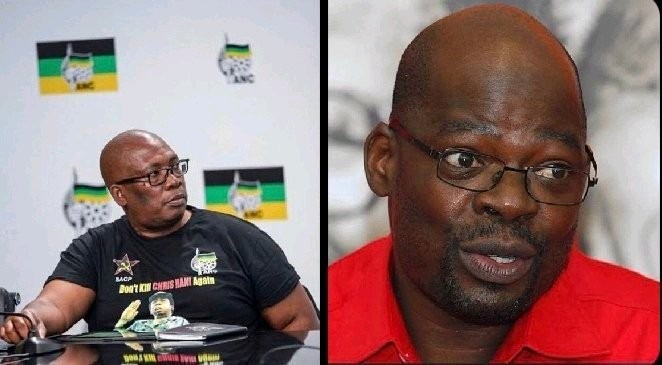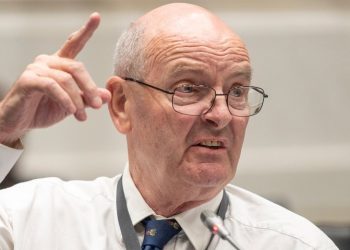In South Africa’s shifting political landscape, two formidable leaders, Gauteng Premier Panyaza Lesufi and South African Communist Party (SACP) Deputy General Secretary Solly Mapaila, are emerging as influential forces driving the nation’s policy and power dynamics. Their vocal opposition to Western Cape Premier Helen Zille and President Cyril Ramaphosa signals a pivotal shift, particularly surrounding the controversial Basic Education Laws Amendment (BELA) Act.
The BELA Act: A Flashpoint for Debate
The BELA Act, a piece of legislation aimed at reshaping local government autonomy and defining public responsibility to the education system, has sparked widespread debate across South Africa. Critics argue that the law diminishes grassroots involvement and local decision-making, creating political tensions throughout the country. Despite initial resistance, President Cyril Ramaphosa signed the bill into law, underscoring the growing influence of Lesufi and Mapaila in shaping national policy.
Lesufi’s Strategic Power Play
Panyaza Lesufi’s political acumen played a key role in the advancement of the BELA Act. Leveraging internal dynamics within the African National Congress (ANC) and securing the support of the ANC Youth League (ANCYL), Lesufi rallied key stakeholders to pressure Ramaphosa into backing the bill. His ability to galvanize grassroots support and solidify alliances positioned him as a rising political heavyweight within the ANC.
“Lesufi has demonstrated a remarkable capacity to navigate party politics and mobilize popular support. His influence extends beyond strategy, positioning him as a central figure in the ANC’s future,” said a political analyst.
Mapaila’s Ideological Influence
Meanwhile, Solly Mapaila has wielded the power of the SACP in the fight against the BELA Act, which he and his supporters believe undermines the interests of the working class. As a staunch advocate for policies aligned with the ANC-SACP-COSATU alliance’s founding principles, Mapaila emphasized the need for legislation that prioritizes the country’s most vulnerable citizens.
By framing the debate within the broader context of economic justice and social equity, Mapaila ensured the SACP’s influence was felt not only in Parliament but also in public discourse.
“Mapaila’s contributions provided a philosophical depth that Ramaphosa and his government couldn’t easily dismiss,” noted a source close to the SACP.
Shifting Power Dynamics
For both Helen Zille and Cyril Ramaphosa, the rise of Lesufi and Mapaila signals a shift in South Africa’s political power structures. Zille’s Democratic Alliance (DA), dominant in the Western Cape, now faces mounting pressure from leaders like Lesufi, who seek to expand the ANC’s reach beyond its traditional strongholds.
Moreover, Ramaphosa’s leadership within the ANC is increasingly challenged by internal factions led by figures such as Lesufi and supported by ideological allies like Mapaila. Their success with the BELA Act demonstrates their growing capacity to influence government policy, signaling a potential reconfiguration of South Africa’s political alliances and power structures.
Looking Ahead
As South Africa approaches crucial national elections, the roles of Lesufi and Mapaila will become even more prominent. Their ability to rally grassroots support, shape policy discussions, and challenge entrenched leaders places them at the forefront of the nation’s political evolution.
The passage of the BELA Act is not only a legislative victory but also a testament to the rising influence of these two leaders. Whether their ascent leads to a more inclusive and equitable South Africa remains to be seen, but one thing is clear: the political status quo is being tested like never before.






















